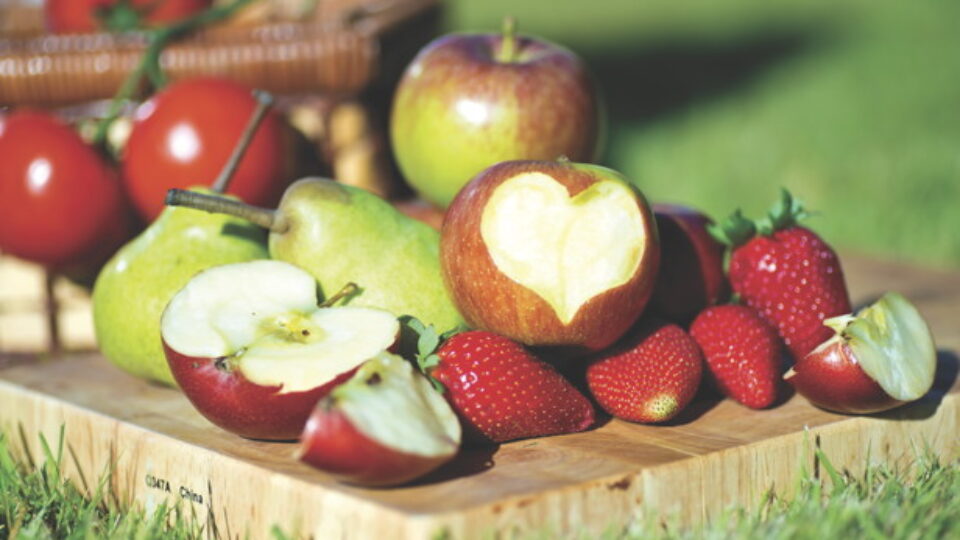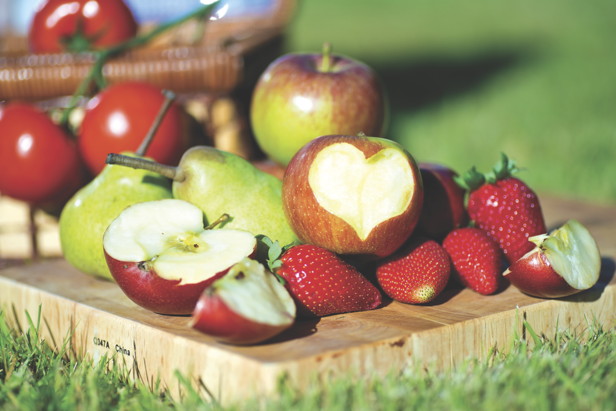
17 Feb2021

share



One sign of a good and healthy relationship with food is allowing yourself unconditional permission to eat.
When you create rules around when you can and can’t eat, you’re setting yourself up for hunger, feelings of deprivation, and fear of food.
Whether you overeat at lunch or have a few extra cookies for dessert, you still deserve to eat when you’re hungry or want to. Your body deserves food no matter the day or situation.
Every person is born with the natural ability to regulate their hunger. You can see this with children, who can easily tell when they’re hungry or full. Although, as people age, they begin to lose this ability for a number of reasons.
Despite your parents’ best efforts, how often did they tell you to clean your plate? While their intentions were good, this told you as a child to ignore signs that you were full and eat until other stimuli (e.g., a clean plate) told you that you were done (1Trusted Source).
Along with this, diet culture has taught people to rely on an arbitrary number of calories to tell them when they’re done eating for the day instead of eating until they’re satisfied.
Still, the closer you can get back to listening to your natural hunger cues, the better you can regulate your appetite and manage your food intake
Mindful eating has become the cornerstone of fixing a bad relationship with food. It involves eating in the moment and being fully present for the eating experience
When you eat mindfully, you’re eating free of other distractions, such as your phone, the TV, a book, etc. Rather, you take time to make gentle observations, such as the taste and texture of the food, how your hunger and fullness cues change, and your enjoyment of the food.
Learning to slow down and savor the food you’re eating can help you learn which foods you genuinely enjoy and also become more in tune with your body’s natural hunger and fullness regulation.
What’s more, it can help you identify the reasons for your food choices. Are you eating because you’re starving and will eat anything in sight? Do you want to eat the food because you think it’ll make you feel better emotionally or physically?
While you eat, try to answer some of these questions:
What flavor and texture am I noticing right now? Do I enjoy it? Am I only eating it because it’s available, or because I really wanted it?
Does this food hit the spot? Does it satisfy the craving I’m having?
Has this food solved a problem like I may have thought it would?
How is this food changing my appetite? Do I notice my hunger going away?
How do I emotionally feel while I eat this? Does it bring me joy, guilt, anger?
Was I actually hungry? If not, why did I decide to eat (e.g., emotional eating, cravings, boredom)?
Some of these questions might be difficult and hard to address. Writing your thoughts down in a journal may be helpful. The key is to answer these questions without judgment and instead with a curious mind.
Over time, these observations can help you identify the reasons for your food choices and whether other healthy coping mechanisms may be warranted.
If you’re interested in giving mindful eating a try, check out our free 21-day mindful eating challenge.
Ascribing a food as “bad” gives it unnecessary power. Indeed, certain foods are more nutritious than others and contribute to improved health. Still, eating a single food isn’t going to miraculously affect your health in any way either.
When you label a food as “bad,” you automatically put it on a pedestal. Usually, people call foods “bad” when they taste good and aren’t very nutritious (e.g., high in sugar, fat, salt). Yet, as soon as you tell yourself you can’t have something, the more you’ll crave and want it.
A research study demonstrated this phenomenon. A group of self-proclaimed restrictive dieters and non-dieters were given a milkshake and then put into private rooms where they could have as many cookies as they wanted
Interestingly, non-dieters were much better at regulating their intake and stopped when they felt satisfied, while the dieters ate significantly more cookies. This was attributed to a process known as “counter-regulation”
Essentially, the dieters felt that since the milkshake already “broke” the rules of their restrictive diet, they might as well overeat the cookies
When you allow all foods into your diet, you’re better able to control your intake, as you know these foods are always available. However, when you restrict foods and believe they’re a rarity, you’re much more likely to overdo it and subsequently enter an endless cycle of guilt.
Contrary to popular belief, it’s quite rare that you’ll always want cookies or cake. When you allow all foods into your diet, you’ll notice that your cravings for certain foods start to diminish
This phenomenon is called habituation. It states the greater exposure you have to a food or flavor, the less interesting and appealing it becomes (6Trusted Source).
So start viewing all foods as equal, with no food being better or worse than another. When you stop viewing foods as “good” or “bad,” you remove the food’s power. Over time, you won’t feel the need to overeat it when it’s around.
Imagine a life in which you don’t have to justify your food choices to yourself or anyone else.
Most people are constantly giving themselves or other people an explanation for their food choices. For example, “I’m eating ice cream because I had a bad day” or “I have to have a salad for dinner because I didn’t have time to exercise.”
Instead of giving a reason for your food choices, allow yourself to eat food that you feel is best for you at that very moment.